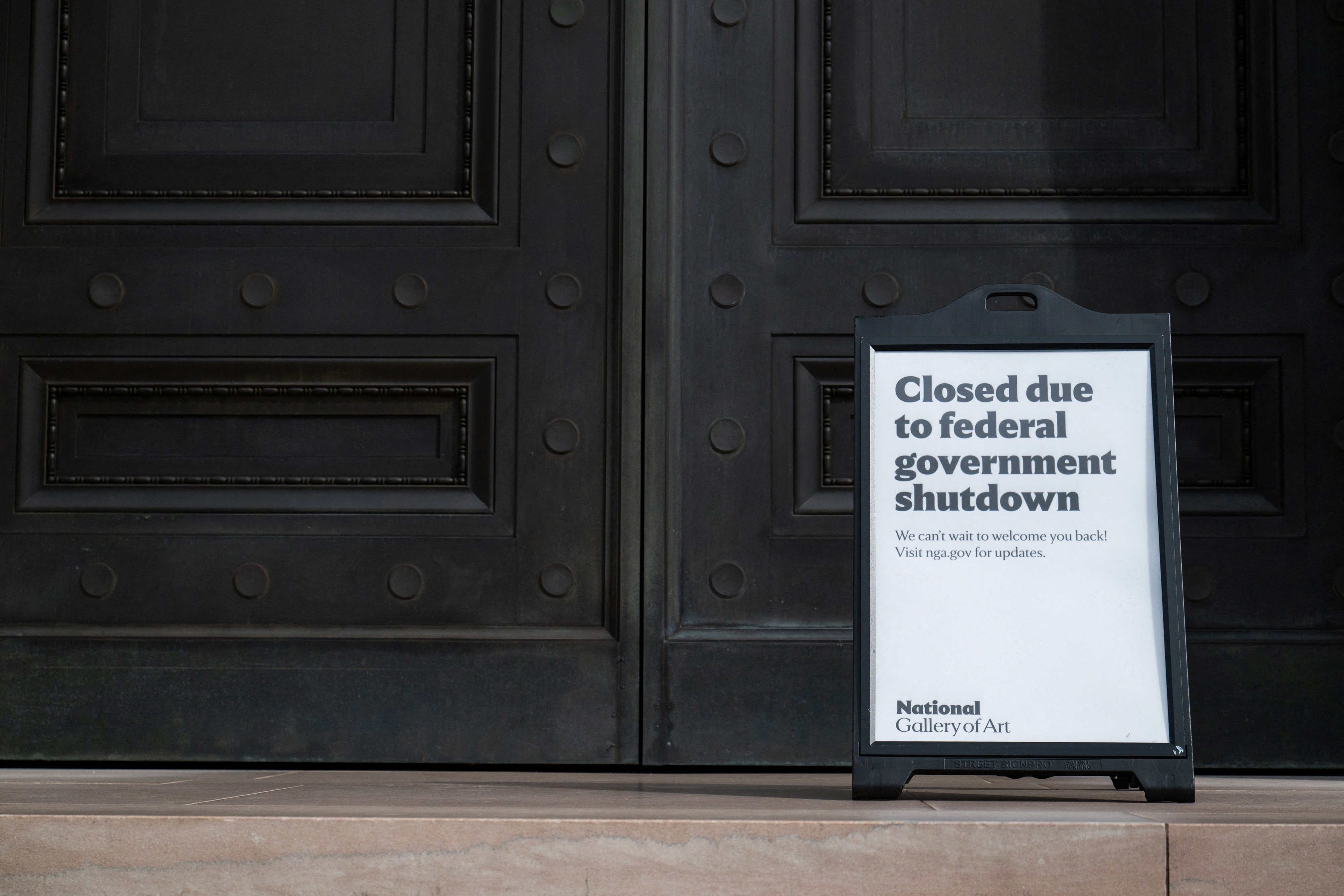US Federal government shutdown grinds into its second week, but quiet talks emerging


WASHINGTON: Tours at the Capitol have come to a standstill. The House is keeping its doors closed, while the Senate is stuck in a loop of failed votes on a rejected plan to reopen the government. President Donald Trump is threatening to mass fire federal workers and refuse back pay for the rest.
As the government shutdown enters a second week, there's no discernible endgame in sight.
“You have to negotiate,” Sen. Bernie Sanders, the independent from Vermont, argued late into the evening on the Senate floor. “That's the way it works.”
But no negotiations, at least publicly, are underway.
Shutdown grinds on, but signs of quiet talks
The Republicans, who hold a majority in Congress, believe they have the upper hand politically, as they fend off Democratic demands to quickly fund health insurance subsidies as part of any plan to end the shutdown.
But so have Democrats dug in, convinced that Americans are on their side in the fight to prevent the looming health care price spikes and blaming Trump for the shutdown.
Behind the scenes, though, signs of discomfort are apparent.
A loosely formed group of senators, comprising both Republicans and Democrats, has debated options for addressing the health insurance issue. One, Sen. Susan Collins of Maine, has offered her own plans.
Two prominent Republicans, Rep. Marjorie Taylor Greene of Georgia and Sen. Josh Hawley of Missouri, have stated that action must be taken to halt the health insurance rate hikes.
And Trump himself signaled he was open to negotiating with Democrats over their demands to save health care subsidies. Earlier this week, the president said that talks were already underway as he wants “great health care” for the people, only to shift his tone hours later to say the government must reopen first.
Trump wants to make a health care deal
“I spoke to the president at length yesterday about that very thing,” House Speaker Mike Johnson said about his Monday conversation with Trump. “And yes, he wants to solve problems.”
At its core, the debate centers on the healthcare issue that has entangled Congress for years, particularly the Affordable Care Act, also known as Obamacare, which Trump attempted, but failed, to repeal and replace during his first term in the White House.
Congress increased the federal subsidies that help people purchase private insurance policies on the Affordable Care Act exchanges during the COVID-19 pandemic. The federal aid was popular, and it boosted ACA enrollment to a record 24 million people. Those enhanced subsidies are set to expire at the end of the year.
Republicans say Congress can deal with the health insurance issue in the months ahead. Democrats are working to resolve the problem now, as people are receiving notices of higher policy rates for the upcoming year.
Senate Majority Leader John Thune, the Republican from South Dakota, has said there may be a path forward — once the government reopens.
“We were always planning to have those discussions,” said Johnson, R-La.
Doubts are high, and trust is low
But Democrats argue that Republicans failed to address the expiring health care subsidies this summer when they approved Trump's signature bill into law, commonly referred to as the One Big Beautiful Bill Act.
Democrats doubt that with Johnson keeping the House out of legislative session and sending lawmakers home to work in their districts, the Republicans will quickly return to work on resolving the healthcare problem.
“Tens of millions of people are about to experience dramatically increased health insurance costs — how is that acceptable in the wealthiest country in the history of the world?” said House Democratic Leader Hakeem Jeffries of New York.
“A health care crisis is unfolding before the eyes of the American people because of the actions taken by the GOP — they’re on vacation," he said.
Missed paychecks for workers, and more failed votes
While federal employees have often missed paychecks during shutdowns, and the first pay period is due in the next week, Trump is now threatening to eliminate guaranteed back pay. It would be a stark departure from the norm. The White House budget office, under Russ Vought, argues that the law states back pay is not automatic and that Congress would need to approve it.
At the same time, Thune's strategy of trying to peel off more Democratic senators to join Republicans in advancing the House-passed bill, which would fund the government without a healthcare fix, has not worked.
In fact, the parties are pulling further apart. Sen. Angus King, the independent from Maine who has voted several times with Republicans to fund the government, has said he may change his vote, joining most Democratic senators who are holding out for a better deal.
The Senate is expected to try again on Wednesday to advance the House GOP’s bill, but it is expected to fail again.
Each side has dug in, convinced they’re on the right side of the shutdown fight, in part because that’s what their internal data shows.
Over the weekend, Senate Democrats were briefed on information suggesting their health care messaging was resonating with voters. The memo from Senate Majority PAC was circulated to House Democrats and campaigns nationwide on Tuesday, with a clear directive: hold the line.
“It would be a mistake to take the pressure off Republicans,” the memo says.
Republicans, meanwhile, are sticking to their own playbook. A memo from the House GOP’s campaign arm urged candidates to focus on the shutdown’s economic impact, including a district-level breakdown of who would be affected by a government shutdown.
Each side has framed the shutdown fight as a precursor to the 2026 midterm elections.
Latest News
36 Taliban killed as Pakistan responds to unprovoked Afghan border fire
3 HOURS AGO

India thrash Zimbabwe in T20 World Cup, S.Africa into semi-finals
3 HOURS AGO

South Africa thrash West Indies in T20 World Cup statement win
6 HOURS AGO

Nearly 8,000 died or vanished on migrant routes in 2025: UN
7 HOURS AGO

Russian says 'no deadlines' to end Ukraine war
8 HOURS AGO
